Hair fall is an alarming issue that can shake your confidence, but did you know most people are unaware of the simple causes behind it? While some hair shedding is natural, excessive hair fall can be a sign of underlying issues. The good news is, you can prevent it with the right approach and lifestyle changes. Let’s dive into the common culprits of hair loss and how you can combat them naturally, without expensive treatments or harmful chemicals.
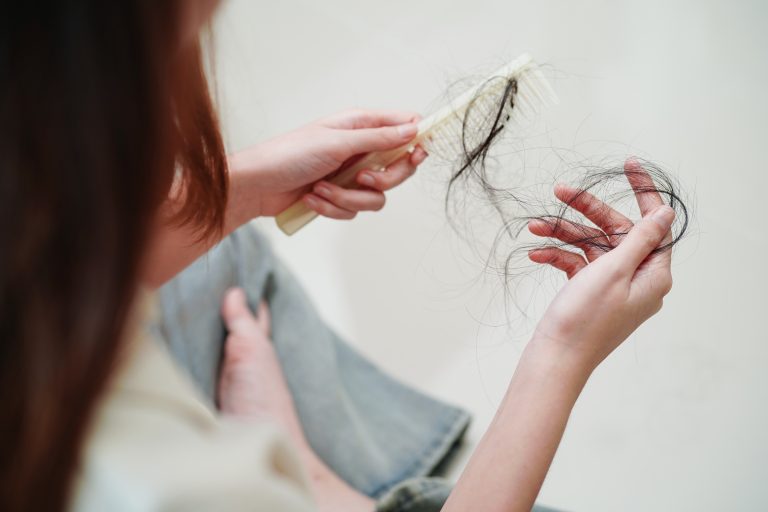
Table of Contents
1. Hormonal Imbalance: The Silent Hair Thief
Hormonal imbalance is one of the leading causes of hair fall, especially in women. Conditions like Polycystic Ovary Syndrome (PCOS), thyroid issues, pregnancy, and menopause can disrupt the normal hair growth cycle, causing more hair to fall out than usual. These hormonal shifts alter the body’s production of certain hormones like estrogen and androgens, which directly impact the hair growth phase.
Solution:
- Balance your hormones naturally by including foods rich in omega-3 fatty acids, such as salmon, walnuts, and flaxseeds. These can reduce inflammation and support hormonal health.
- Regular exercise is vital for balancing hormones. Engage in activities like yoga and walking, which reduce stress and stabilize hormone levels.
- Consider taking adaptogenic herbs such as maca root and ashwagandha to support adrenal function and balance hormone production.
- Consult a healthcare provider for blood tests to check hormone levels. They may recommend supplements like evening primrose oil or hormone-regulating medication.
2. Stress: A Hair Nightmare
In today’s fast-paced world, stress is a major contributor to hair fall. Stress triggers a condition called Telogen Effluvium, where a large number of hair follicles prematurely enter the shedding phase, leading to noticeable thinning.
Solution:
- Practice relaxation techniques like deep breathing, meditation, or guided visualization. These methods lower cortisol levels, which are elevated during stress and can lead to hair fall.
- Mindful practices such as journaling and gratitude exercises also help reduce stress.
- Natural supplements like magnesium and B-complex vitamins can support the nervous system, helping your body better cope with stress.
- Schedule regular “me time” to reset your mind and body, which can directly impact your hair health.
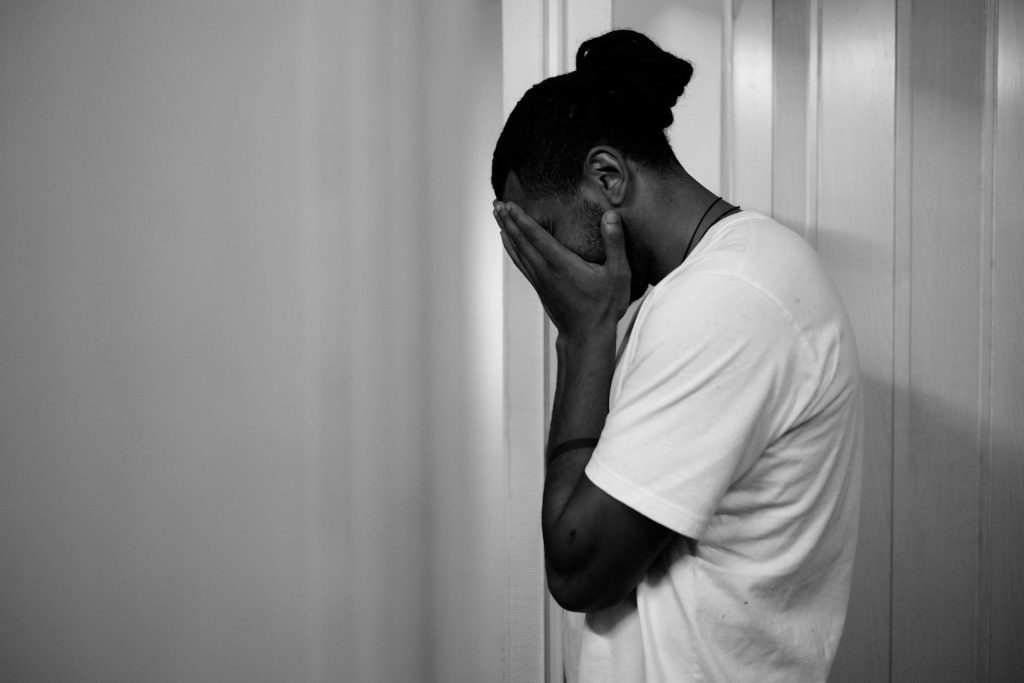

3. Nutritional Deficiencies: Starving Your Hair
Your hair requires a steady supply of essential nutrients to stay healthy. Deficiencies in key vitamins and minerals such as Vitamin D, iron, zinc, and biotin are commonly associated with increased hair fall. These nutrients support hair growth at the follicle level, strengthening the hair and improving texture.
Solution:
- Eat a balanced diet that includes foods rich in essential nutrients like leafy greens (spinach, kale), protein sources (eggs, chicken), and nuts (almonds, walnuts). These nourish hair from the inside out.
- Vitamin D deficiency is prevalent and directly impacts hair growth. Consider spending more time outdoors or supplementing with vitamin D3.
- If you experience severe deficiencies, a blood test can reveal what’s lacking. Your doctor may prescribe supplements for iron, zinc, or other necessary nutrients.
- For better absorption, pair iron-rich foods with vitamin C sources, such as orange juice, to enhance iron uptake.
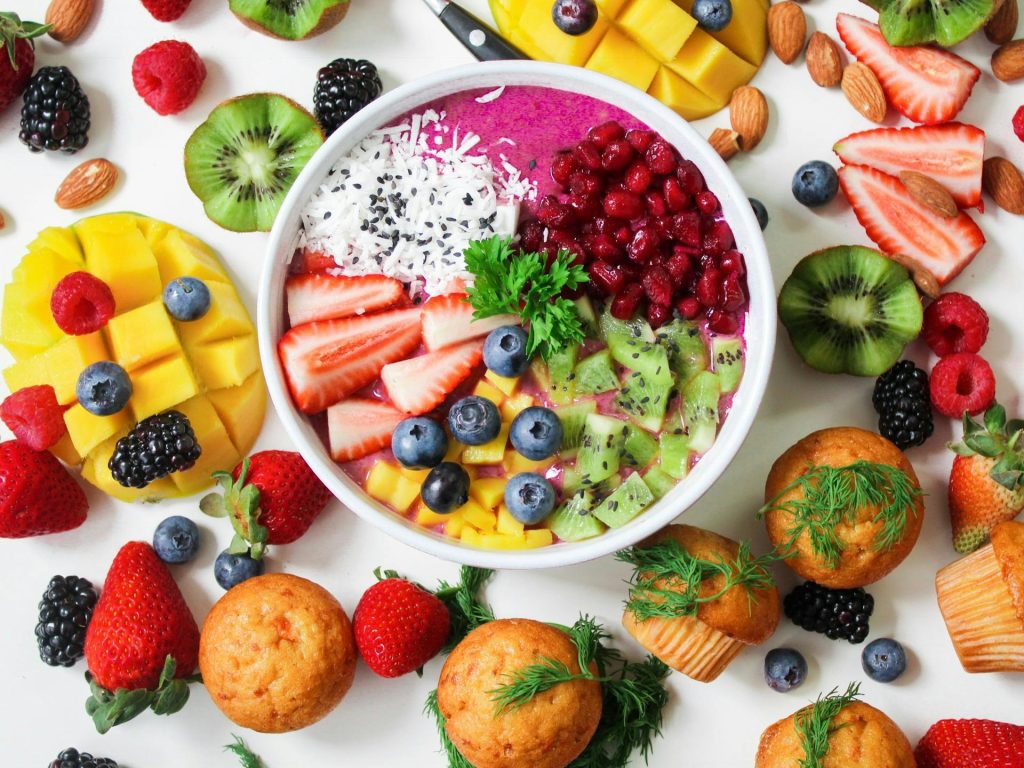

4. Overuse of Heat Styling Tools: Damage from the Inside Out
Heat styling tools such as straighteners, curling irons, and blow dryers are a major contributor to hair fall and breakage. Constant exposure to high temperatures weakens the hair shaft, making it more vulnerable to damage and eventual hair shedding. Prolonged use can strip your hair of moisture, leaving it fragile and prone to split ends, which eventually lead to excessive hair fall.
Solution:
- Limit heat styling to once a week or use heat-free methods like air-drying or styling with foam rollers.
- Always apply a heat protectant spray or serum before using heat tools to create a barrier between your hair and the heat.
- Use tools that allow you to adjust the temperature and keep it at a moderate level to avoid excessive heat damage.
- Incorporate a weekly moisturizing hair mask with ingredients like coconut oil or shea butter to restore hydration lost from heat exposure, preventing hair breakage and fall.
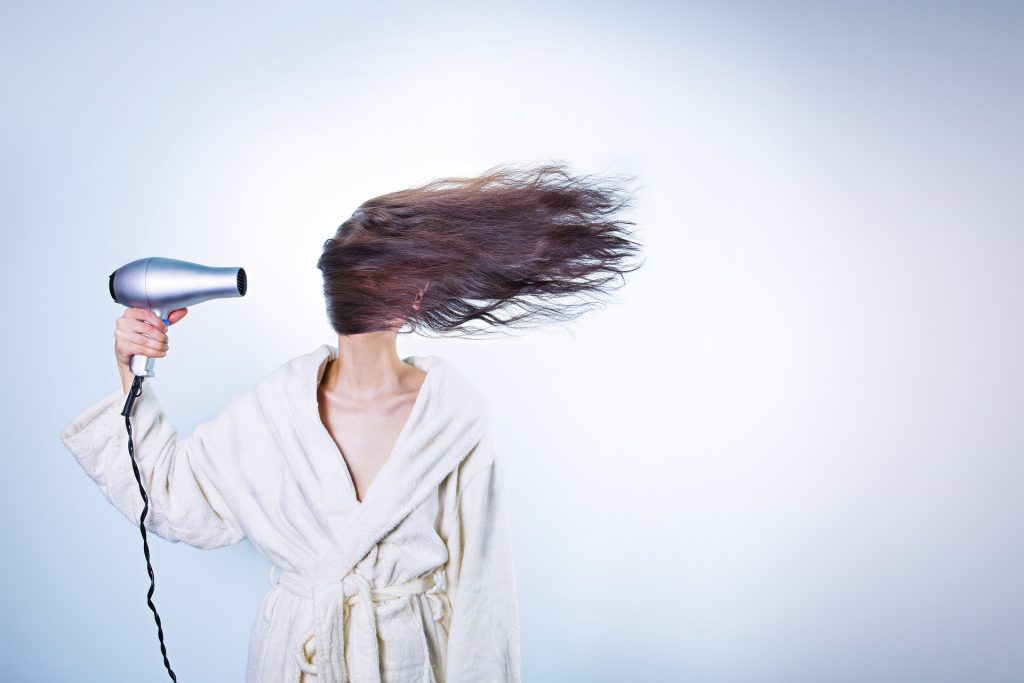

5. Harsh Hair Care Products: A Hidden Danger
Many commercial hair care products contain harmful chemicals that not only weaken your hair but can also cause hair fall over time. Ingredients like sulfates, parabens, and silicones strip the hair of its natural oils, leaving it dry, brittle, and prone to falling out. Over time, the consistent use of these products leads to a cycle of hair damage and increased hair fall.
Solution:
- Switch to natural products free from harmful chemicals. Look for labels that say “sulfate-free,” “paraben-free,” and “silicone-free.” These formulas are gentler on the scalp and help reduce hair loss.
- Opt for shampoos with nourishing ingredients like argan oil, aloe vera, and keratin, which help restore strength and shine, reducing the risk of hair fall.
- Avoid frequent chemical treatments like perms, relaxers, and dyes, as these can weaken the hair shaft and lead to more hair shedding.
- Use a clarifying shampoo once a month to remove product buildup that can clog hair follicles and inhibit hair growth, contributing to hair thinning and fall.
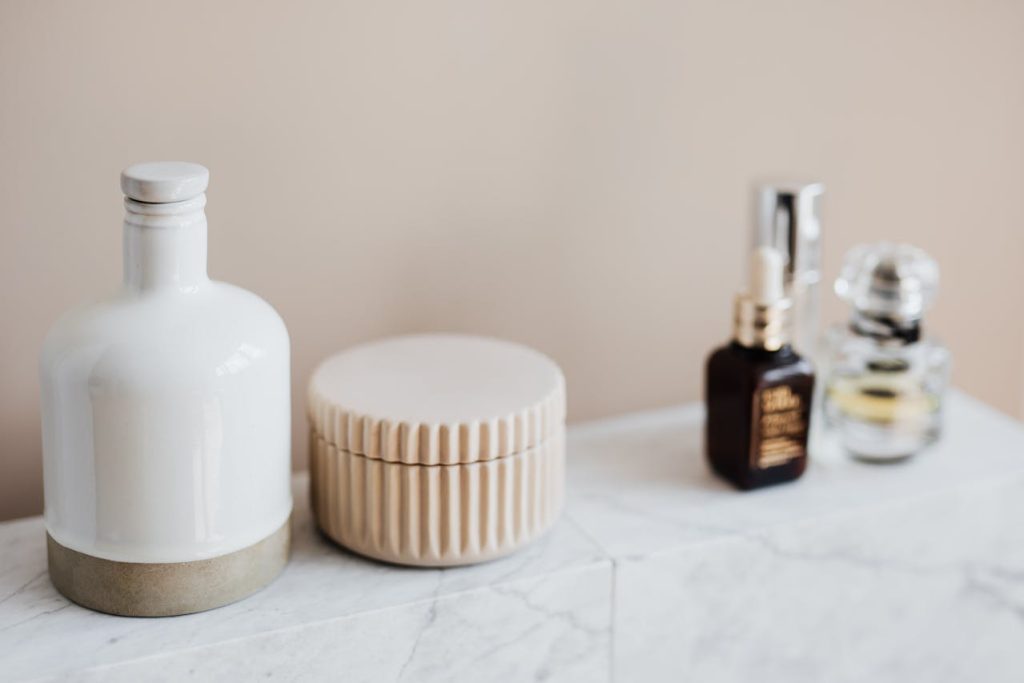

6. Genetics: Blame It on the Family
Genetics play a significant role in hair loss, particularly in conditions like Androgenetic Alopecia, which is common in both men and women. This type of hereditary hair loss leads to thinning at the crown or a receding hairline. Although you can’t alter your genes, there are natural methods to slow down the progression and combat genetic hair fall.
Solution:
- Natural DHT blockers such as saw palmetto, pumpkin seed oil, and green tea have been shown to prevent genetic hair loss by reducing DHT levels, which are responsible for shrinking hair follicles.
- Regular scalp massages with essential oils like rosemary, peppermint, or lavender stimulate blood circulation, promoting healthy hair growth and reducing hair thinning.
- For more advanced treatment, microneedling can be combined with natural oils to enhance absorption and stimulate growth in areas affected by genetic hair fall.
7. Excessive Hair Washing: More Harm Than Good
Washing your hair too often can strip away the natural oils that keep your scalp healthy and hydrated. This can lead to dry, brittle hair, making it more prone to hair breakage and fall. While clean hair is important, over-washing can do more harm than good by causing hair thinning and increased shedding.
Solution:
- Cut back on shampooing to 2-3 times a week. If you have oily hair, try using a dry shampoo in between washes to absorb excess oil without stripping the scalp of its natural protective oils, which can prevent hair loss.
- Use hydrating shampoos with natural oils like argan oil or coconut oil to maintain moisture balance and prevent hair damage.
- Incorporate a weekly deep conditioning treatment to replenish moisture and strengthen your hair, reducing the likelihood of hair fall due to dryness and brittleness.
8. Tight Hairstyles: Pulling Your Hair Out (Literally)
Wearing tight hairstyles like ponytails, braids, or buns consistently can lead to traction alopecia, a condition where the hair is pulled so tightly that it damages the follicles and causes hair to fall out. The tension on the scalp from these styles can result in hair breakage and long-term hair loss if not addressed.
Solution:
- Alternate between tight and loose hairstyles to reduce tension on the hair. Opt for looser, protective styles like a low bun or braid to minimize hair damage.
- Use soft, fabric hair ties instead of rubber bands to minimize hair breakage and reduce stress on your scalp.
- Avoid sleeping with your hair tied up, as this puts extra strain on the follicles during the night, leading to increased hair fall.
9. Pollution and Environmental Damage: The Unseen Enemy
Exposure to environmental factors like air pollution, harsh winds, and UV radiation can weaken your hair and contribute to hair thinning. Pollution particles settle on the scalp, clogging hair follicles and leading to irritation, while UV rays can break down the protein structure of your hair, causing dryness and hair fall.
Solution:
- Wear protective gear like hats, scarves, or hair wraps when spending long hours outdoors, especially in polluted or sunny areas. This helps shield your scalp from environmental factors that cause hair damage.
- Use hair products that contain UV protection or antioxidants to protect your hair from environmental damage, reducing the risk of hair thinning.
- Rinse your hair with clean water after a long day outside to remove dirt, pollution, and sweat that could accumulate on your scalp and contribute to hair fall.
10. Lack of Proper Scalp Care: Neglecting the Root Cause
Your scalp is the foundation of healthy hair, and neglecting it can lead to clogged follicles, dryness, and dandruff—all of which can contribute to hair fall. A healthy scalp is essential for maintaining strong, resilient hair and preventing excessive hair loss.
Solution:
- Exfoliate your scalp regularly with a gentle scalp scrub to remove dead skin cells and product buildup. This keeps follicles clear, allowing for better hair growth and minimizing hair shedding.
- Use a scalp massaging tool to stimulate blood circulation and oxygen flow to the hair follicles, boosting hair growth and preventing hair thinning.
Apply nourishing oils like jojoba oil, tea tree oil, or rosemary oil to maintain a healthy scalp environment. These oils have antifungal and antibacterial properties that keep the scalp clean and free from irritation, preventing hair fall.
Final Thoughts: Take Control of Your Hair Health
Hair fall may seem overwhelming, but with the right approach, you can significantly reduce it and enjoy healthier, fuller hair. Start by identifying the specific cause of your hair fall and take proactive steps to address it. Whether it’s balancing your hormones, managing stress, or simply switching to better hair care products, small changes can have a big impact over time.
For further guidance and expert tips, here are some additional resources:
Your journey to healthier hair begins now!